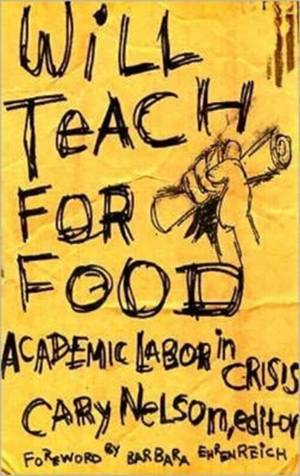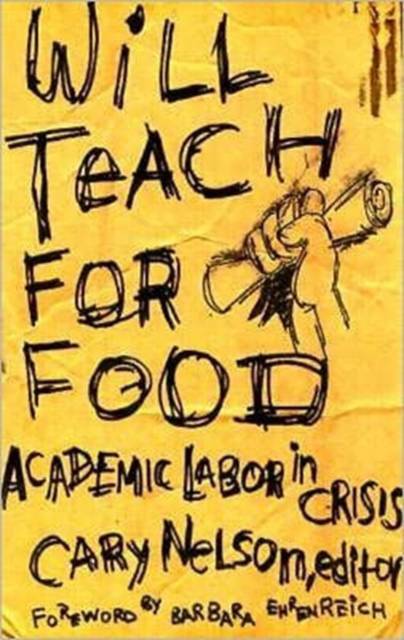
- Retrait gratuit dans votre magasin Club
- 7.000.000 titres dans notre catalogue
- Payer en toute sécurité
- Toujours un magasin près de chez vous
- Retrait gratuit dans votre magasin Club
- 7.000.0000 titres dans notre catalogue
- Payer en toute sécurité
- Toujours un magasin près de chez vous
Description
When graduate students at Yale University held a "grade strike" during the 1995-96 academic year, they were protesting policies such as downsizing, subcontracting, and outsourcing -- strategies currently wreaking havoc on the larger U.S. workforce. The debates at Yale mirror those on many campuses: whether graduate student teaching assistants are students or employees of the university; whether faculty are management or staff; what constitutes a reasonable teaching load and fair compensation.
In Part I of Will Teach for Food, participants describe the Yale student strike and examine what workers on other campuses can learn from this action. In Part II, activists and scholars place the challenge to academic workers in the context of U.S. labor history and assess the impact of university "corporatization" on the communities that surround them and on higher education as a whole.
A compelling examination of the human cost of today's corporate colleges and universities.
"When an elite institution dedicated to scholarship and education uses strong-arm tactics to suppress its own graduate students, when it starts asking its employees to susbist on poverty-level or sub-poverty-level wages -- this is more than a little disillusioning.It's like finding out that an elegant old gentleman you've always admired at a distance has a secret life as a mugger and a thug. It's painful to watch. But of course it's happening everywhere". Barbara Ehrenreich, from the Foreword
Spécifications
Parties prenantes
- Auteur(s) :
- Editeur:
Contenu
- Nombre de pages :
- 320
- Langue:
- Anglais
- Collection :
- Tome:
- n° 12
Caractéristiques
- EAN:
- 9780816630349
- Date de parution :
- 15-04-97
- Format:
- Livre broché
- Format numérique:
- Trade paperback (VS)
- Dimensions :
- 138 mm x 216 mm
- Poids :
- 317 g







